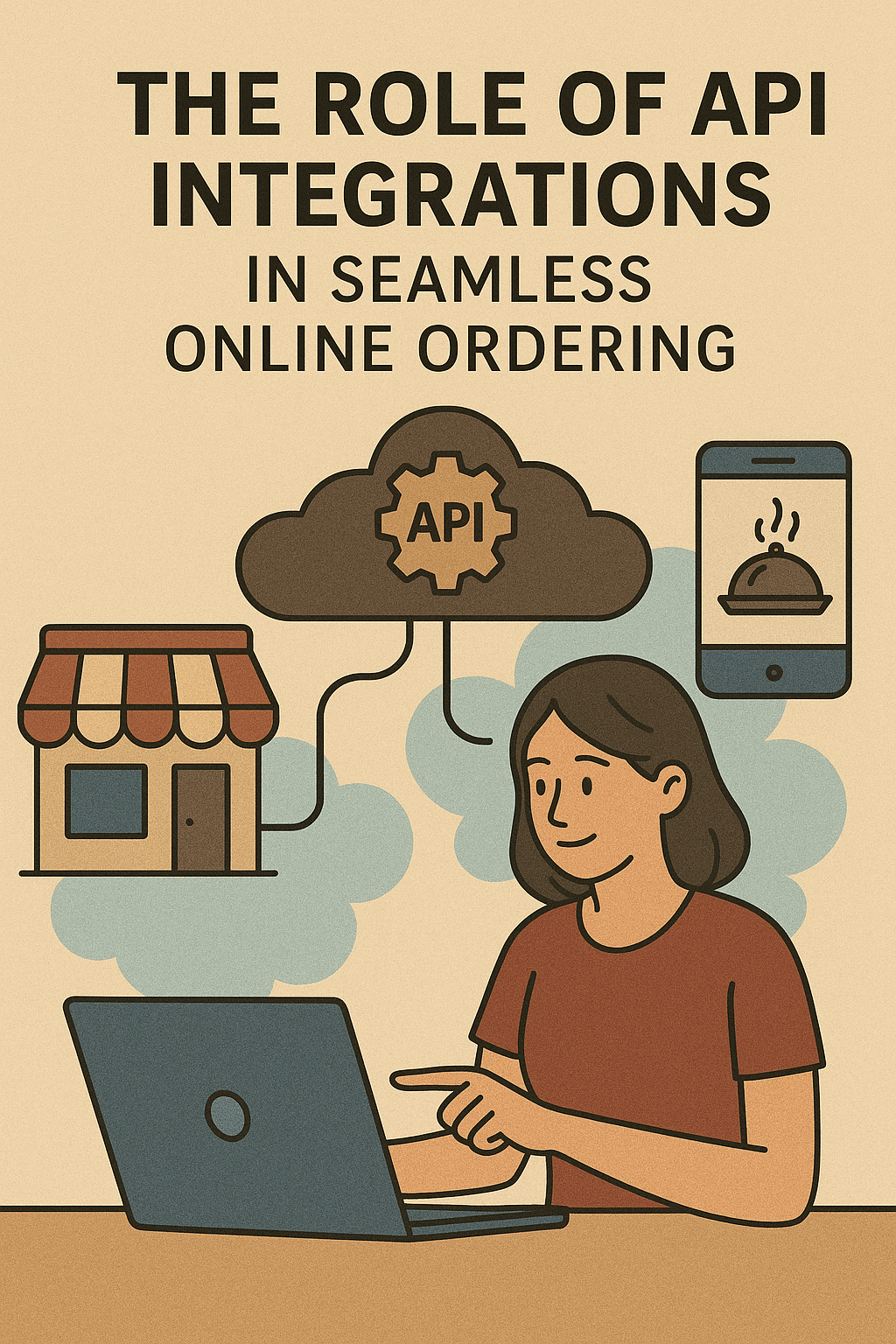In the rapidly evolving landscape of e-commerce, the seamless integration of Application Programming Interfaces (APIs) has become a cornerstone for businesses aiming to enhance their online ordering systems. By facilitating efficient communication between diverse software applications, API integrations play a pivotal role in streamlining operations, improving customer experiences, and driving business growth. This comprehensive exploration delves into the multifaceted benefits of API integrations in online ordering, underscoring their significance in today’s digital marketplace.
Understanding API Integrations in E-Commerce
At its core, an API serves as a set of protocols and tools that enable different software applications to interact seamlessly. In the context of e-commerce, API integrations connect various systems—such as online storefronts, payment gateways, inventory management, and customer relationship management (CRM) platforms—to function cohesively. This interconnectedness ensures that data flows smoothly across all touchpoints, creating a unified and efficient operational framework.
Streamlining Operations Through API Integrations
One of the primary advantages of API integrations is the streamlining of business operations. By automating data exchange between systems, businesses can eliminate manual processes, thereby reducing errors and saving valuable time. For instance, when an online order is placed, APIs can automatically update inventory levels, process payments, and generate shipping information without human intervention. This automation not only enhances efficiency but also allows staff to focus on more strategic tasks.Workato+2bullshark.digital+2Merge API+2
Real-Time Data Synchronisation
In the fast-paced world of online retail, real-time data synchronisation is crucial. API integrations ensure that any changes in one system are immediately reflected across all connected platforms. This means that inventory updates, pricing adjustments, and order statuses are consistently accurate, reducing the risk of overselling or customer dissatisfaction due to outdated information.
Enhancing Customer Experience
A seamless online ordering process significantly contributes to a positive customer experience. API integrations enable features such as real-time order tracking, personalised recommendations, and efficient customer support by providing a holistic view of customer interactions. When customers receive timely updates and personalised services, their satisfaction and loyalty are likely to increase.Merge API+3KitchenHub+3Workato+3bullshark.digital
Efficient Inventory Management
Effective inventory management is vital for meeting customer demand and minimising holding costs. API integrations provide real-time visibility into stock levels, allowing businesses to manage their inventory more effectively. This visibility helps prevent stockouts and overstock situations, ensuring that popular products are always available while reducing excess inventory.bullshark.digital
Accelerated Order Processing
Speed is of the essence in online ordering. API integrations facilitate faster order processing by automating workflows from order placement to fulfilment. This acceleration reduces lead times, enabling businesses to meet customer expectations for quick deliveries and enhancing overall satisfaction.
Accurate Financial Tracking
Maintaining accurate financial records is essential for any business. API integrations ensure that sales data, refunds, and other financial transactions are consistently updated across accounting systems. This accuracy simplifies financial reporting and aids in compliance with regulatory requirements.bullshark.digital
Data-Driven Insights
Access to integrated data allows businesses to generate comprehensive reports and analytics. By analysing this data, companies can gain valuable insights into customer behaviour, sales trends, and operational performance. These insights inform strategic decisions, helping businesses to optimise their offerings and identify new opportunities.
Cost and Time Savings
Automating processes through API integrations leads to significant cost and time savings. By reducing the need for manual data entry and minimising errors, businesses can allocate resources more effectively and focus on growth initiatives.bullshark.digital
Scalability and Growth
As businesses expand, their systems must be able to scale accordingly. API integrations provide the flexibility needed to integrate new applications and services seamlessly, supporting growth without overhauling existing systems.
Centralised Customer Data
Consolidating customer data from various touchpoints into a centralised system enables businesses to deliver more personalised marketing and support. API integrations facilitate this centralisation, providing a comprehensive view of each customer and enhancing relationship management.bullshark.digital
Overcoming Challenges in API Integration
While the benefits are substantial, implementing API integrations comes with its challenges. Businesses may encounter issues such as compatibility between different systems, data security concerns, and the need for ongoing maintenance. Addressing these challenges requires careful planning, selecting the right integration tools, and ensuring robust security measures are in place.
Conclusion
In the dynamic realm of e-commerce, API integrations are indispensable for creating a seamless online ordering experience. They enhance operational efficiency, enrich customer interactions, and provide the agility needed for businesses to thrive in a competitive market. By embracing API integrations, companies can not only meet current demands but also position themselves for future growth and innovation.


